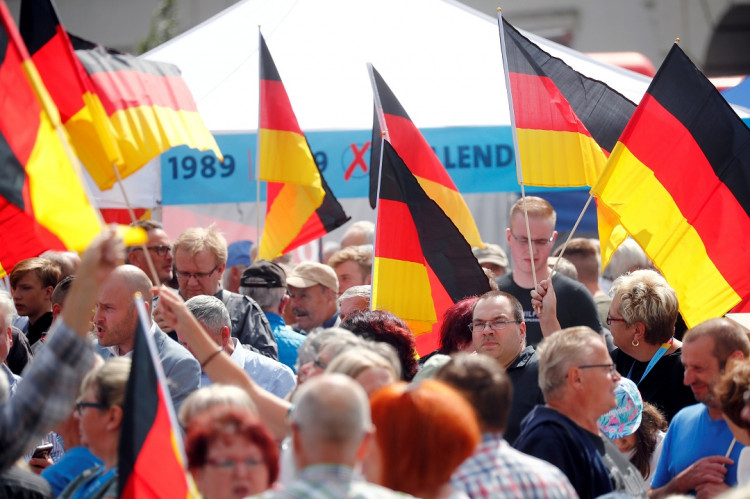Germany's economic outlook for 2024 has taken a turn for the worse, with the government revising its growth forecast down to a mere 0.2%, a significant drop from the previously anticipated 1.3%. This adjustment reflects the nation's struggle through what Economy Minister Robert Habeck described as "tricky waters," exacerbated by global economic instability, diminished world trade growth, and soaring interest rates. These factors have notably hindered investment, particularly within the construction sector, leading to project cancellations and a downturn in order numbers.
The German economy, Europe's largest, finds itself teetering on the edge of stagnation, narrowly avoiding a recession in the latter half of 2023 despite a 0.3% contraction in GDP during the final quarter and an overall decline for the year. Habeck highlighted a recent budgetary crisis that has further complicated the economic landscape, referencing a 60 billion euro shortfall resulting from a constitutional court ruling against reallocating unused emergency debt from the COVID-19 pandemic.
Amid these challenges, Habeck emphasized the structural issues and skilled labor shortages that threaten Germany's industrial competitiveness. He projected a decrease in inflation to 2.8% in 2024, with expectations to return to the 2% target by 2025, offering a glimmer of hope amidst the economic gloom.
The backdrop of these economic tribulations includes Germany's energy crisis following Russia's invasion of Ukraine, which severed the country's reliance on Russian gas and spiked energy costs. This situation has squeezed households and reignited concerns about Germany's manufacturing processes and reliance on exports, placing the nation in a precarious position.
Despite the Bundesbank's warning that Germany might be on the cusp of a technical recession, defined by two consecutive quarters of negative growth, there's a cautious optimism that the economy might gradually recover in 2024. This optimism is supported by falling inflation rates, low unemployment, and reduced energy costs.
However, the construction industry encapsulates the broader economic woes, with high interest rates, bureaucratic hurdles, and a skilled labor shortage contributing to a significant increase in insolvencies. Business leaders like André Kasimir express frustration with governmental inaction, criticizing excessive regulations and the lack of effective measures to address the housing crisis in major cities.
Political discord further muddies the waters, with internal coalition squabbles and opposition from conservative factions in the upper house of parliament stalling economic stimulus legislation proposed by Habeck. The government's low approval ratings and the constitutional court's rebuke of its budget strategy underscore the deep-seated challenges facing Chancellor Olaf Scholz's coalition.
As Germany grapples with these multifaceted issues, the path to economic stability appears fraught with obstacles, from political infighting to structural inefficiencies. The nation's ability to navigate these "tricky waters" will be crucial in determining its economic future and position as a leading industrial power.






